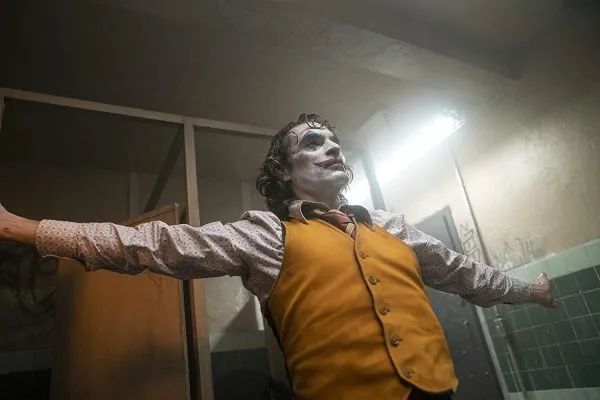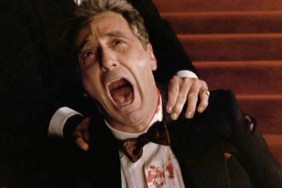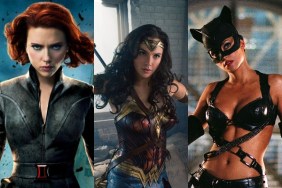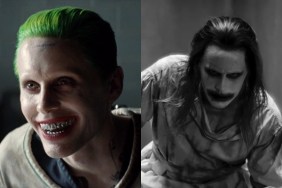Joker leads this year’s Oscar race with 11 nominations—the most ever for a comic book movie. Twelve years ago, Christopher Nolan’s The Dark Knight received eight Oscar nominations and was not only the most-nominated comic book movie at the time but also began a discussion regarding the genre’s credibility. The Dark Knight’s Best Picture snub actually forced the Academy to expand the Best Picture list to include more mainstream titles. Before Heath Ledger’s Joker and his paint-stained hands appeared on screen, no one seemed to take the genre seriously.
Joker and The Dark Knight have more in common than just an iconic criminal; both films provoke the same question: is this a comic book movie? One is more equitable to a twisted character piece and the other a crime thriller. No one asked this genre question when talking about Avengers: Endgame or even last year’s Black Panther (which received seven nominations). What is it about these DC films that makes them Oscar-worthy in a way that Tony Stark will never be? In an attempt to answer that question (and the former), here is the Joker movie guide to creating an Oscar-worthy comic book film.
Cover Photo: Warner Bros.
Mandatory Movie Battles: Heath Ledger’s Joker vs. Joaquin Phoenix’s Joker
A deep dive: 8 Genius Joker Fan Theories to Help You Put on a Happy Face
Follow Mandatory on Facebook, Twitter, and Instagram.
Joker Guide
-
Find a Popular and Batshit Character

It all starts with characters like the Joker. Ever since the villain first appeared in the Batman comic, people have been obsessed with the character who laughs at everything wrong. He’s an obvious jab at social constructs and morality—the things Hollywood loves to explore. Travis Bickle, Hannibal Lecter, Alex DeLarge, and Randle McMurphy are all examples of Oscar-worthy characters who are byproducts of their societies.
When Heath Ledger’s Joker started manically clapping in his cell, Hollywood knew what needed to happen next: let’s take this character to the bank. The Academy’s reaction to The Dark Knight was: “thrilling, fun, and smart, sure, but let’s dial in on that dude in the nurse’s uniform and make him care about things.” People love crazy. Brad Pitt’s first (and only Golden Globe win before Once Upon A Time in Hollywood) came when he played a mental patient in Twelve Monkeys. The Dark Knight showed the Academy that this type of batshit character existed within the comic book genre and now the flood gates are open. In another 12 years the movie Thanos will be released, staring an overweight Timothée Chalamet as the conflicted Titan with an unfortunate chin deformity.
-
Cast an Edgy Actor
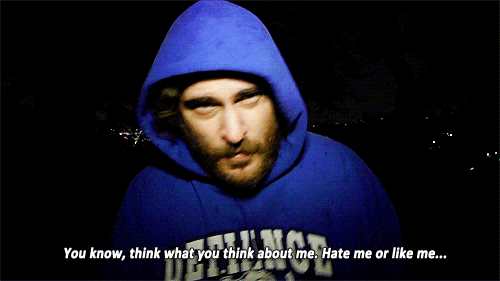
A comic book ensemble won’t win Best Picture. This is a character piece, so find yourself that actor or actress, the kind that grows depression beards, puts a paper bag over their head, and sends their costars rats—someone who really gets into character. Jared Leto took on the Joker in 2016’s anti-hero ensemble Suicide Squad and his performance received mixed reviews. Enter Joaquin Phoenix.
Everyone was screaming Oscar the second they heard Phoenix would be playing the Joker in a solo movie (at the time rumored to be produced by Martin Scorsese). The buzz surrounding Joker was unparalleled; it’s curious why Warner Bros. was afraid to make the movie at one point. There’s a lot that could’ve gone wrong, sure, but a comic book character piece was going to happen sooner or later and it was going to happen with the Joker. Obviously Phoenix delivers: he lost the weight, danced the dance, and got dark AF.
-
Embrace a Darker Tone
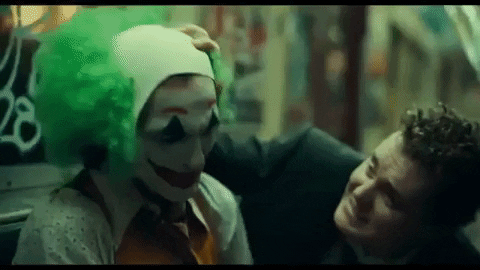
Joker director Todd Phillips had previously been largely contained to comedies, but this film is anything but funny (except for that scene with the dwarf who can’t get out of Arthur Fleck’s apartment). Joker is set in Gotham circa 1981, and the gritty, gloomy, and unforgiving city resembles a poverty- and crime-plagued New York City. The realistic setting draws viewers in more than a fictionalized setting. On top of this, Phoenix’s Fleck has an uncontrollable laughter disorder and is delusional thanks to a lifetime worth of trauma.
No one wins in Joker—it’s not a superhero film. There are no messages of overcoming adversity or discovering the hero within; Joker is a ruthless character study about how environment influences people. Your standard superhero or comic book film is joyful, while Joker is dark.
-
Slow It Down

Lay off the explosions, fight scenes, anything that might allow for the Academy to think they’re watching a "theme park ride." The Academy needs to believe they are watching something other than a comic book movie, so if the bullets start to fly, feel free to throw your main character into a bathroom for a bit of interpretive dance. If you want to throw critics off of the comic book scent even more, allow for the character’s psychosis to blur the film’s narrative, really making it something to be studied. Joker’s multifaceted origin story (adhering to the comic book character's own wishes), has resulted in a perfectly round number of interpretations and theories. The smaller budget will also score you some brownie points.
-
Throw in a Bit of Controversy
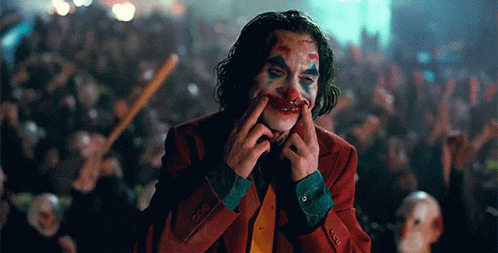
When Joker premiered at the Venice Film Festival last August, some critics praised it as a work of art that reached beyond its genre while others thought it was a dangerous film that could incite violence. The fact that Arthur Fleck is a quasi-sympathetic anti-hero despite all of the despicable things he does, the “kill the rich” uprising, and overall disregard for virtue (even Thomas Wayne is depicted as a horrible person), was seen as toxic. Articles were written all over the internet condemning it, often by people who hadn’t even seen the film.
Those who enjoyed the film see it as more of a cautionary tale: what can happen when it all goes wrong. All of this controversy only added to Joker’s buzz; in retrospect, it has become the first billion-dollar grossing R-rated film and has killed it at the Golden Globes and BAFTAS so far. Audiences wanted to see the comic book version of Taxi Driver more than they wanted to see the merc with a mouth.
-
Continuously Reassert the Fact That You’re 'Operating Under the Guise of a Comic Book Movie'

If there’s one thing we can learn from Todd Phillips and Joaquin Phoenix, it’s how to talk about a non-comic book movie comic book movie. When asked about their approach to Joker, the creative minds behind the film have spoken about the difficulty they had making it. They one thing that made the pitching process easier was the fact that it revolved around a popular character and source material.
Phillips has made it sound like he just threw in the comic book stuff (such as the Joker persona, cameos appearances by the Wayne family, and narrative parallels with the comics) to open creative doors. He made a “comic book movie” so that he could make the movie he wanted to make. The Academy loves creative struggles and a good old bait-and-switch.
-
Ultimately, Don't Make a Comic Book Movie

No comic book movie has ever won Best Picture. Joker’s most notable nominations this year are for Best Director, Best Picture, and Best Actor. It isn’t just the most nominated comic book movie of all time; its 11 nominations are also the most of any film this year. On the surface, it appears Joker has defeated the Academy’s genre bias against comic book movies. By making a film within that genre that fits the Academy’s profile, Joker could make history.
The not-so-simple questions asked at the beginning of this article brings us to a much simpler one: is Joker the best comic book movie ever made? No. Hell, it’s not even the best movie this year. The Academy would have us believe otherwise. Joker’s award season appeal revolves around its spectacular lead performance and breaking of the comic book mold. Sometimes giving out awards isn’t about awarding the “best” but being as dramatic as possible. Joker is the antithesis of a superhero movie; however, it may open the door even further for future, more traditional superhero films in the eyes of the Academy. Until then, if you want to snag those nominations, don’t make a comic book movie.
